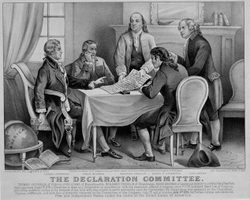China continues to buy our debt, at stable prices. China keeps its own currency cheap. While some would complain about this, a sudden re-valuation would force Chinese investors to demand more interest for their U.S. debt — a lot more. And that would collapse both the U.S. and the Chinese economies.
It looks like a death grip between two villains falling together off the same cliff. But look carefully. What happens after the fall explains why China continues to go down this path.
By buying our debt, China gains more-and-more leverage over American
policy, and the world’s policy toward its ambitions generally. Had it
pulled its support in 2004, or 2006, nationalistic American politicians
may have been able to squeeze China back. With every day that passes
their ability to do this fades. Reneging on the debt destroys the
American currency, and every American’s savings — including the dollar
assets of its wealthy. Paying back the debt slowly puts American
policies in China’s pocket indefinitely. Try to do a little of both and
it’s the worst of both worlds, stagflation on steroids.
Chinese leaders believe they can continue down this path until the destruction of
the American economy from a raise in the Yuan’s value (and skyrocketing
American interest rates) is not fatal to China’s own economic growth
and stability, that is, until their economy has diversified to the point where a collapse in American values won’t cause severe hardship.
It can even manipulate American politics — damaging our
economy when it doesn’t like our policies, letting up when it gets what
it wants.
Only one issue can push China into pulling the plug on terms not of its own choosing. Pollution. (The map to the right shows nitrous oxide poisoning in Chinese air — note how it’s all headed for next year’s Beijing Olympics.)
The wise course would be to start spending current account surpluses on pollution control technology, even from overseas. That would raise U.S. interest rates slowly, since it would cut the amount of capital available for such purchases. But it might keep the game going a bit longer.
As it is, China is simply waiting for the public political pressure to grow so intense it has to move. It’s like the 1960s were here. (There’s a red moon rising on the Big ol’ Yellow River. Rolling into Shanghai by the sea.) And you know who signed the Clean Air Act, don’t you? That’s right, Nixon. Life is funny that way. But just as Nixon in China sparked world-reaching change, perhaps Gore in China can do the same, in a positive way.
One more important point.
China has done all this, not with weapons of mass destruction, but with the weapons of peace. There is a lesson in that which American conservatives will learn far too late.













